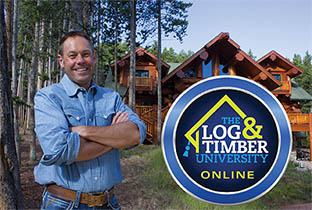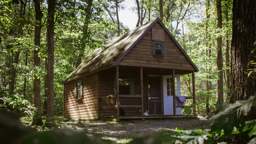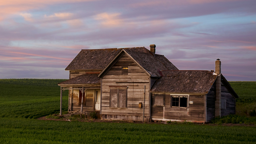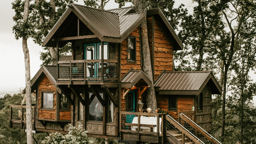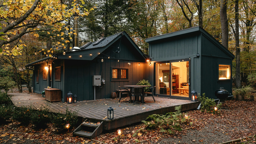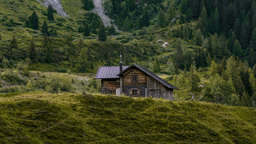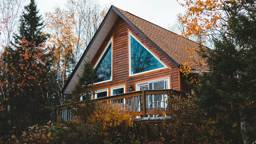
Q. Our three-season cabin is on the north shore of Lake Michigan in the Upper Peninsula of Michigan. We are now finishing an 18x18-foot addition that has a crawl space underneath. We would like to install some type of hardwood or engineered hardwood on the floors, but we’re concerned about having no heat in the cabin through the winter months and what that might do to the flooring. Do you have any suggestions on what type of flooring we should use that can withstand long cold winter months? –Lonnie Cross, St. Ignace, Mich.
A. Unfortunately, there is no hard-and-fast answer to this question. However, there are certainly some solutions which will hold up better than others. Amid changes in temperature and humidity, all flooring materials are susceptible to expansion and contraction to some extent, but engineered hardwood flooring is going to be the most dimensionally stable material you will find. Because of its multilayered construction, the planks will not expand and contract as much as a solid hardwood floor. However, any real hardwood flooring material, whether it’s solid or engineered, may develop small gaps between the planks. If gaps are a concern for your project, going with a floating floor might be a better option to suit your needs. Floating floors, such as laminate or newer luxury vinyl planks, have locking systems where all of the planks are connected to each other and the unit simply “floats” over your subfloor without the use of adhesives or fasteners. These planks will also expand and contract, but they will do so as one whole unit because they are locked together. Floating floors tend to be more economical than hardwoods, and they are a snap to install – pun intended.
Some homeowners fear that laminate, vinyl and other floating floor materials will not have the authentic look of hardwood, but manufacturing has come a long way in making the planks look very realistic. Another option is the engineered hardwood floor paneling with locking systems, which combines a “real wood look” with the convenience of a floating floor. You could also modify your favorite engineered hardwood floor by applying glue to the tongue and groove system.
ABOUT OUR AUTHOR
Matt Werner is the owner of Floor Coverings International in Waukesha, Wis., www.floorcoveringsinternational.com.
